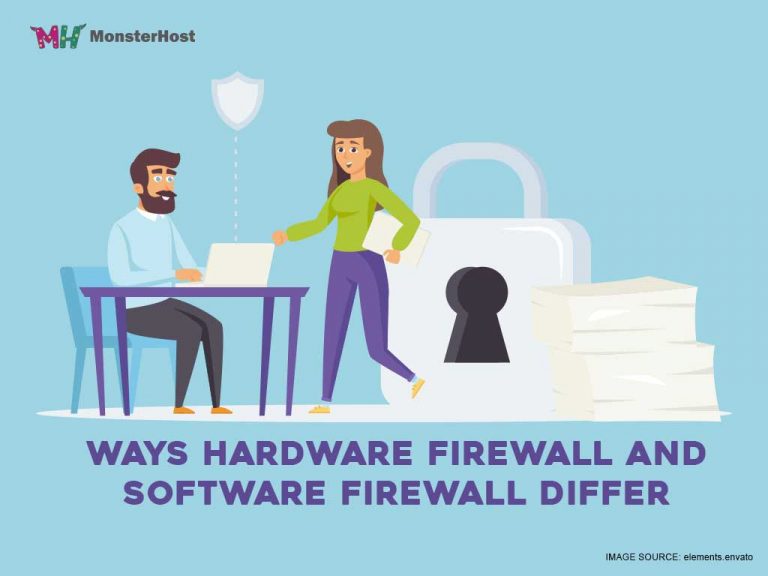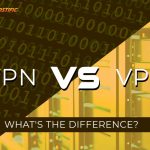Even when you’re a fledgling website owner you know that firewalls are a part and parcel of your top-notch internet security detail. But what is a firewall and why do you need one for your website? Simply, a firewall is a defense mechanism that protects both personal computers as well as the entire network of servers communicating from unauthorized and malicious access attempts.
Each firewall system has software mechanisms whose installation files disclose whether the firewall functions as a personal firewall or an external one. A personal firewall is also referred to as a desktop firewall. It is installed onto the drive of a computer and offers the best defense for private computers. An external firewall is used for securing an entire network. We’ll break down how these two systems are different from one another and which firewall method is best to protect computer systems and servers alike.
Table of Contents
Security and Hosting
When it comes to your internet security your hosting provider should provide the first line of defense as it pertains to your hosting solution. Each server at Monsterhost.com is outfitted with a top of the line hardware firewall. Especially or VPS and dedicated hosting solutions, managed and unmanaged come backed with a hardware firewall that helps protect against cyber-espionage, hacking and more. If you’re still asking how a firewall can help safeguard your website then we’ve outlined just how they work.
let’s dive right in.
Hardware firewall vs. software firewall
The major difference between both firewall options can be observed in the varying components they use: A personal firewall also known as a software or desktop firewall is a robust software solution that is installed on the computer that it is to protect and shield against viruses and malware. Once a software firewall is installed it functions by monitoring the flow of data traffic between the computer and all corresponding networks. Operating systems like Windows are inclusive of a software firewall as an option and part of their software package.
An external firewall is a combination of software and hardware mechanisms. Both mechanisms exist between multiple computer networks and they monitor the flow of data traffic between them; making such systems referred to as network firewalls or hardware firewalls. Simply, an external firewall is a device that stands-alone but is aided by an integrated network interface connecting different networks. They are used to control data traffic, firewall programs and sometimes operating systems and are installed on these devices.
In other words, a hardware firewall is used on networks and servers and a software firewall is used for personal computers.
The advantages of a hardware firewall
When it comes to complexity, hardware firewalls are vastly more complex than software firewalls. They are also the more expensive option of the two because they are the more robust security option. One of the biggest advantages of a hardware firewall is that because it doesn’t run on the system it is meant to protect, cybercriminals and hackers have a harder time trying to manipulate it.
On the other hand, after a software firewall is deactivated, the computer and network it is on are immediately vulnerable and defenceless. This leaves users of the system unaware of a potentially disastrous attack. But a similar attack on a network firewall would directly lead to a complete system shutdown of the device, which would block both inward and outward data traffic until a reboot is carried out.
This added layer of security is the number one reason that makes hardware firewalls the preferred solution of computer systems that need extensive protection like servers and data centres. It’s common for sensitive data traffic to be monitored both with and without servers, on devices like company networks by the robust security of professional hardware firewalls.
Another reason why an external firewall is a choice for professionals is that installing software firewalls on each computer system takes a lot of time and effort and software installations require additional configuration. Beyond that the high cost associated with software firewalls are also an issue as you are required to purchase a separate license for each software installed on a computer; and lastly, as mentioned, there is a higher security risk.
Possible Applications for Hardware vs Software Firewalls
Personal firewalls (software) are inexpensive with an easy installation process, are designed for private use on personal computers and are easily configured by users with less technical experience. Smaller companies can use software firewalls since they may have more straightforward networks. Plus once the configuration is set up properly, they can enjoy added protection. And if the needed budget and know-how for installation are available, this option can also make a beneficial addition to hardware firewalls.
To reiterate, network firewalls are extremely popular for protecting the exchange of sensitive data between servers and normally protect networks connected to the internet. When other networks connect to a private network poses a potential threat to security. Therefore, it is possible to install hardware firewalls individually to strengthen and further protect the operating system.
Following these steps makes a server immune to any external attacks from cybercriminals. On the other hand, there is an easier option. Use a firewall appliance—this refers to a system comprised of hardware, fortified operating systems and custom-designed firewall software.
The Need for Proper Internet Security
When it comes to ensuring that your website is completely fortified against a myriad of cyberattacks, we have got you covered. Regardless of if you use a shared hosting solution or a VPS and beyond that a dedicated hosting solution, our hosting packages can be customized further to suit all of your security needs. Beyond hardware firewalls, you can opt to have a managed experience. Both our VPS and dedicated hosting solution, as mentioned earlier. Even further you can add website monitoring systems to your packages. This includes a backup solution to ensure that you’ve outfitted your website with every possible way it can remain secure. Cyberattacks are not your fault but ensuring your website is adequately protected is your responsibility.






